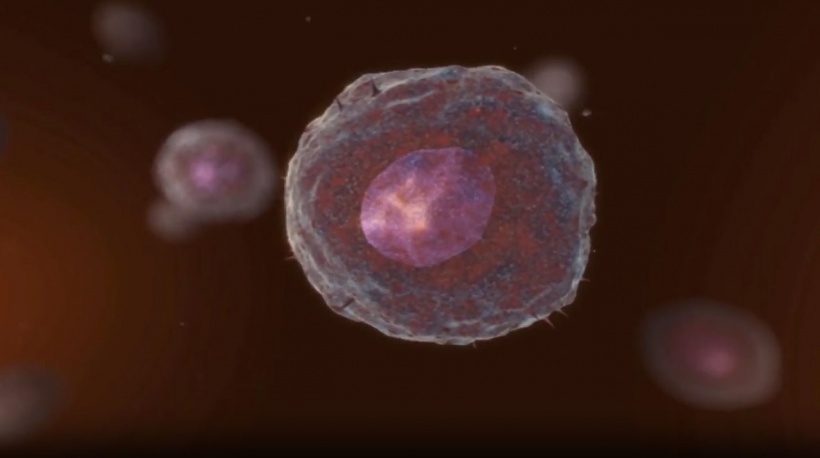Are you concerned about the timely detection of cancer? The circulating tumor cell (CTC) count test might be the solution you’ve been looking for. With its ability to detect cancer early, this test holds immense potential to save lives.
Understanding the Significance of Early Cancer Detection
Cancer is a devastating disease that affects millions of people worldwide. Timely detection plays a crucial role in improving patient outcomes and survival rates. When cancer is detected in its early stages, treatment options are often more effective and less invasive. Additionally, early detection allows for proactive management, potentially preventing cancer from spreading to other body parts.
What are Circulating Tumor Cells (CTCs)?
Circulating tumor cells, or CTCs, are cancer cells detached from the primary tumor site and enter the bloodstream. These cells have the potential to spread to other organs and tissues, leading to the progression of cancer. The presence of CTCs in the bloodstream is an indication that cancer may have metastasized or is in the process of spreading.
The CTC count test is designed to identify and quantify these circulating tumor cells. By analyzing the number of CTCs in a blood sample, doctors can gain valuable insights into the stage, aggressiveness, and prognosis of cancer. This information is crucial in determining the most appropriate treatment options and monitoring the effectiveness of ongoing therapies.
How Does the CTC Count Test Work?
The CTC count test involves a simple blood draw, similar to a routine lab test. The blood sample is then sent to a specialized laboratory for analysis. Advanced technologies, such as immunohistochemistry and molecular biology techniques, are used to identify and count the CTCs.
During the analysis, specific markers distinguish CTCs from normal blood cells, allowing for accurate identification and quantification of CTCs. The results are then reported to the healthcare provider, who can interpret the findings and make informed decisions regarding patient care.
The Importance of CTC Count in Cancer Diagnosis and Treatment
The CTC count provides valuable information about the progression and spread of cancer. Higher CTC counts are often associated with more advanced stages of the disease and a poorer prognosis. Conversely, decreasing CTC count over time may indicate a positive response to treatment.
Monitor the CTC count to help doctors make more informed decisions about treatment options. If the CTC count is high, more aggressive treatment strategies may be necessary. Conversely, if it is low, less invasive treatment approaches may be considered.
Advantages of the CTC Count Test over Traditional Cancer Screening Methods
The CTC count test offers several advantages over traditional cancer screening methods. Unlike invasive procedures such as biopsies, the CTC count test only requires a simple blood sample, making it convenient and accessible for patients of all ages and medical conditions.
Furthermore, the CTC count test can be performed regularly to monitor changes in the CTC count over time. This allows for proactive and personalized treatment plans. By detecting changes in the CTC count early, healthcare providers can modify treatment approaches to ensure the best possible outcomes for their patients.
Who Should Consider Getting a CTC Count Test?
The CTC count test can be beneficial for a wide range of individuals, including those at high risk for cancer, individuals with a family history of cancer, and patients undergoing cancer treatment. It can also be useful for monitoring cancer recurrence or assessing the effectiveness of targeted therapies.
If you have concerns about cancer or are currently undergoing cancer treatment, it is worth discussing the CTC count test with your healthcare provider. They can assess your situation and determine if the test suits you.
The Process of Getting a CTC Count Test
Getting a CTC count test is a straightforward process. It starts with a consultation with your healthcare provider, who will assess your medical history and determine if the test suits you. A blood sample will be taken during a routine visit or at a specialized laboratory if deemed appropriate.
The blood sample is then sent to a laboratory equipped with the necessary technologies to analyze CTCs. The laboratory technicians will analyze and generate a report detailing the CTC count and other relevant information. Your healthcare provider will review the results with you and discuss the implications for your care.
CTC Count Test Providers and Availability
The CTC count test is becoming increasingly available in many healthcare settings. Specialized laboratories and clinics offer this test, often collaborating with oncologists and other cancer specialists. It is important to consult with your healthcare provider to determine the availability of the CTC count test in your area.
Additionally, healthcare providers can provide valuable information about the reliability and accuracy of different CTC count test providers. They can guide you in selecting a reputable provider that meets your needs and ensures reliable results.
Conclusion: Empowering Early Detection and Improved Cancer Management
The circulating tumor cell (CTC) count test is a powerful tool in the fight against cancer. By analyzing the number of CTCs present in the bloodstream, doctors can gain valuable insights into the progression and spread of cancer. This information enables timely detection and personalized treatment plans, ultimately improving patient outcomes.
If you are concerned about cancer or are currently undergoing treatment, it is worth discussing the CTC count test with your healthcare provider. Considering this test, you are taking an active step towards timely detection and potentially life-saving interventions. Don’t wait until it’s too late – inquire with your healthcare provider about today’s CTC count test.
Remember, early detection is key to managing cancer effectively. The CTC count test offers a noninvasive and convenient alternative to traditional diagnostic procedures. By monitoring changes in the CTC count over time, healthcare providers can tailor treatment plans to maximize effectiveness. Take control of your health and empower yourself with the CTC count test—your key to timely cancer detection.














